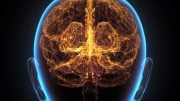
Researchers from Yale found that obesity is associated with diminished brain response to nutrient intake, which doesn’t recover even after weight loss. The study offers insights into why maintaining weight loss is challenging for some people and emphasizes the significant role of the human brain in obesity.
A new research study reveals a diminished response to nutrients among people with obesity — and that this brain response is not recovered after weight loss.
After a person eats, the gut dispatches a series of signals to the brain conveying the presence of nutrients, a phenomenon that scientists believe may help regulate eating behavior. However, in a new study led by Yale’s Mireille Serlie, researchers found that while the detection of nutrients in the stomach does induce brain activity changes in lean people, such brain responses are largely diminished in people with obesity.
These differences in brain activity, the researchers say, could help explain why it’s difficult for some to lose weight and maintain weight loss.
The findings were published June 12 in Nature Metabolism.
Over 4 million people die each year around the world as a result of being overweight, according to the World Health Organization, and understanding the biological factors that contribute to obesity will be essential for addressing its devastating, global impact, say researchers. And while the ways that the body responds to nutrient intake may be a key factor in eating behavior, the role of nutrient signaling in humans is not well understood.
For the new study, researchers infused glucose or fat directly into the stomach of 28 people identified as “lean” — those with a body mass index (BMI) of 25 or less — and 30 people with obesity (BMI of 30 or higher). They then assessed brain activity through functional magnetic resonance imaging (fMRI).
Among lean participants, the researchers saw evidence of reduced activity across various regions of the brain following the infusion of both glucose and fat. Conversely, they observed no changes in activity in participants with obesity.
“This was surprising,” said Serlie, a professor of medicine (endocrinology) at Yale School of Medicine and senior author of the study. “We thought there would be different responses between lean people and people with obesity, but we didn’t expect this lack of changes in brain activity in people with obesity.”
Serlie and her colleagues then took a closer look at a brain region called the striatum, which previous research has shown mediates the rewarding and motivational aspects of food intake and plays a key role in regulating eating behavior. The striatum does this in part through the neurotransmitter dopamine.
Using fMRI, they found that in lean people, both glucose and fat led to decreased activity in two parts of the striatum. However, only glucose led to changes in brain activity in participants with obesity, and only in one area of the striatum. Fat did not change brain activity in this region. When researchers evaluated dopamine release in the striatum following nutrient infusion, they found that glucose-induced dopamine release in both groups of participants while fat only caused dopamine release in lean participants.
These findings, the researchers said, are compatible with reduced nutrient sensing in people with obesity.
For the study, participants with obesity then underwent a 12-week dietary weight-loss program; those who lost at least 10% of their body weight were then re-imaged.
For these individuals, the researchers found, weight loss did nothing to change the brain’s response to nutrient infusion. “None of the diminished responses were recovered,” said Serlie.
Prior analyses have found that most people who lose weight regain it within a few years of dieting. These new findings, the researchers say, may help explain why that’s so often the case.
“In my clinic, when I see people with obesity, they often tell me, ‘I ate dinner. I know I did. But it doesn’t feel like it,’” said Serlie. “And I think that’s part of this defective nutrient sensing. This may be why people overeat despite the fact that they’ve consumed enough calories. And, importantly, it might explain why it’s so hard to keep weight off.”
Understanding the biology of eating behavior in humans is still in its early stages, says Serlie, and more research will be needed to uncover why diminished nutrient sensing occurs in some people, what biological pathways are involved, and when these changes begin to take hold.
“Everyone overeats at times. But it’s unclear why some people continue to overeat and others don’t,” she said. “We need to find where that point is when the brain starts to lose its capacity to regulate food intake and what determines that switch. Because if you know when and how it happens, you might be able to prevent it.”
Similarly, knowing when changes to nutrient-sensing become irreversible would help physicians determine treatment paths for patients. And one goal for the future, Serlie said, would be to find a way to restore nutrient sensing, if possible.
Regardless, she said, the findings drive home the human brain’s key role in obesity.
“People still think obesity is caused by a lack of willpower,” said Serlie. “But we’ve shown that there is a real difference in the brain when it comes to nutrient sensing.”
Reference: “Brain responses to nutrients are severely impaired and not reversed by weight loss in humans with obesity: a randomized crossover study” by Katy A. van Galen, Anouk Schrantee, Kasper W. ter Horst, Susanne E. la Fleur, Jan Booij, R. Todd Constable, Gary J. Schwartz, Ralph J. DiLeone and Mireille J. Serlie, 12 June 2023, Nature Metabolism.
DOI: 10.1038/s42255-023-00816-9









As with many things that are self induced I’ve often wondered, should society even worry about keeping these people alive?
If these people choose to eat themselves to death, let them.
In 1980, as a mistakenly recognized authority on food safety, the US FDA instigated the global obesity pandemic with the criminal approval of the expanded use of added ‘cultured-free’ (as opposed to natural ‘protein-bound;’ can cross the blood brain barrier) monosodium glutamate (MSG) knowing full-well then it would be harmful to “a subset of the population” (FASEB reports on MSG to the FDA) but, apparently, not “how, how many or how soon?”
In early 1981 I became mysteriously, seriously ill with chronic fatigue, sluggish metabolism, a high serum level of uric acid, a low oral temperature, generalized aches, pains and muscle weakness and serious mood swings and, decades later, serious and very serious medically undiagnosed nutritional deficiencies of calcium and phosphorus, respectively.
The US obesity epidemic presented by 1990 (CDC/NCHS data). Only gradually and intermittently discovering what made me seriously ill in early 1981, forty-two years later (while still ingesting more commercially added MSG than anyone should) I’m ingesting a lot less food and drink, still borderline obese and trying to trigger my mitochondria to switch back from glycogenesis (glucose to fat) to glycolysis (glucose-to-energy) with targeted nutritional supplements with, perhaps, some very recent success.
Anyone with a reasonable diet and lifestyle who doesn’t become obese from ingesting toxic commercially prepared modern pseudo- foods is very fortunate.
Did the problem with brain signaling occur after the subjects became obese, or did they have some faulty signaling prior to becoming obese? It’s still curious that so many do NOT become obese, despite having access to unlimited calories. Also, it appears obesity tends to follow income levels and other measures of life success, so it’s likely there is a correlation there as well.
It sounds like people prone to obesity will need to pay attention to external clues (portion size, calorie count, etc.) to both avoid becoming obese and maintaining a healthy weight after weight loss.
This is my own experience and observation of others:
From my 20s to my mid-50s, I was lean. Some even told me I was skinny but they were heavier people themselves. I ate like a ‘lumberjack’ and never had to regulate my portions. Nursing my three children in my 20s and 30s no doubt helped keep me lean and I was also very active in gardening and working. But beginning in my early 60s I started gaining weight as my activity level severely dropped off due to breaking my coccyx (tailbone) and a prolonged illness, coupled with depression. The lack of activity made gaining weight inevitable for me. Others still consider me relatively slim to average but I know I’m fat in places where I never was before. I don’t want to become overweight or fatter as I see how people at my age will continue gaining weight, develop health problems like diabetes, heart problems and arthritis, and are unable to do things they’d like to. So now I have to eat much less than I ever did before and curtail my fat and sugar intake. I want to do this before I find myself in the position the article states where my brain won’t respond.
If you watch film clips of everyday people moving about – say a city scene – you’ll rarely see a person who’s really overweight. Some older ones might be plump but that’s as far as it goes. I sincerely believe that people’s sedentary lifestyle coupled with easy access to fat and sugar laden junk food are the main reasons that there’s an epidemic of obesity. Yes, some groups of people are prone to being heavier but historically they weren’t fat.
I think it still matters to try to help those who are fat to obese lose weight and successfully keep it off. But rather than try to figure out at what point the brain fails to respond, why not take the approach taken with tobacco and cigarette smoking? Aggressively campaign/advertise/stress the health dangers of becoming fat. Make junk food exorbitantly expensive, taxing them heavily. Print out photos of arteries clogged with plaques, fat encasing hearts on the packages of junk food. Put up large posters, in prominent places, of what happens to the body from obesity. It worked for smoking as the number of people smoking dropped way down and fewer and fewer young people pick it up now – so much so that tobacco companies had to switch their focus and branch out in other areas. Tackle obesity before it ever occurs instead of ‘closing the barn door after the horse has bolted’.
Jude who replied about making fatty food expensive and campaigning with photos and info commercials about how the body looks when obese!! Brilliant idea. And this study does not measure brain receptivity before people became obese so there is no data and clear etiology of the brain source before people ever got obese. We as a society are not hitting this topic hard enough in the right ways of communicating the damages to our community. Spot on Jude!!
Michelle, if you haven’t already, try reading my reply to tennisguy. There is much more to this obesity epidemic than you, Jude, tennisguy and most people can even imagine; criminal conspiracy (e.g., MURDER BY INJECTION, Eustace Mullins, 1988). And, medical ignorance and incompetence regarding undiagnosed food allergies and FDA approved food poisoning leads to excessive medical errors and pushing of prescription drugs. More specifically about smoking, a non-smoker raised by smoking parents and exposed to second-hand smoke on-the-job for decades in the day, I’ve never been made as ill from second-hand smoke as I have been from personal allergens aggravated with added MSG. I postulate people who get seriously ill from smoking have an undiagnosed allergy to tobacco. I’ve already written the corresponding author of of the article of my now senior lay findings of forty-two years and counting. Take care; be well.